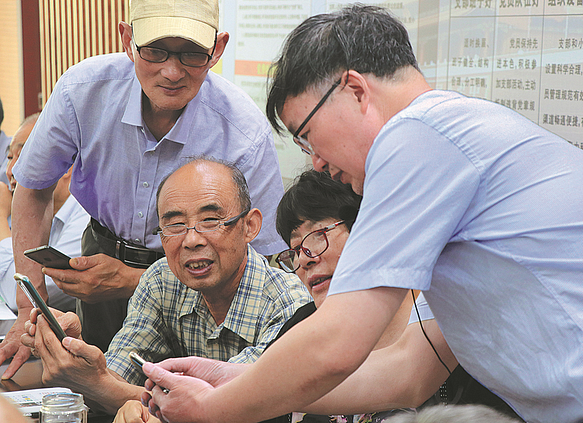 Source from 中国日报
Source from 中国日报
Introduction
Internet addiction among older people in China has become a growing concern recently. As China’s population ages, more and more older people are turning to the Internet as a source of entertainment and social interaction. However, excessive internet use can negatively affect physical and mental health, leading to social isolation and other social issues. Understanding the root causes of this phenomenon and its potential social impacts is essential.
Current Situation
According to a report by mobile content aggregator Qutoutiao, 38.6% of people aged 60 or older in China were internet users, and around 0.2% of them spend at least 10 hours a day online. Excessive internet use can lead to health problems such as insomnia and depression, which are particularly common among older adults. Social consequences of internet addiction among older people include increased isolation and disconnection from family and friends.


The Root Reasons for the Current Situation
Loneliness and lack of social support can make older adults more susceptible to internet addiction. For example, older adults living alone or with limited social networks may use the Internet to alleviate loneliness or boredom.
The influence of digital technologies and social media can also contribute to internet addiction among older people in China. For instance, using social media platforms may create a sense of social pressure or FOMO (fear of missing out) among older adults who feel compelled to stay connected with friends and family online.
Broader social and economic changes in China, such as the rise of the “silver economy” and the increasing importance of digital technologies in healthcare and social services, may also contribute to internet addiction among elderly people. For example, older people who rely on digital technologies for healthcare or social services may be more likely to use the Internet excessively.
Potential Social Issues
Decreased social participation is one potential social issue arising from internet addiction among older adults in China. Excessive internet use can lead to decreased face-to-face interactions and social activities, leading to isolation and loneliness.
Increased healthcare costs are another potential consequence of internet addiction among elderly people. Excessive internet use can lead to various health problems, such as insomnia and depression, that may require medical attention.
The strain on family and caregiver relationships is a third potential social issue. Internet addiction can create tension and conflict within families and between caregivers and their elderly charges, particularly if excessive internet use interferes with daily activities or responsibilities.
Finally, internet addiction among older adults can make them more vulnerable to online scams and fraud. Older adults may be targeted by scammers who use the Internet to gain access to personal information or financial resources.
By addressing these root causes and potential social issues, we can work together to find solutions that promote healthy ageing and social connectedness for all members of our society.
Reference
[1] “Internet Use by China’s Elderly: Report.” China Daily. https://global.chinadaily.com.cn/a/202109/24/WS614d233fa310cdd39bc6b2b5.html.
[2] Yan, Wei. “The Social Impact of Digital Technologies on Chinese Society.” East Asia Forum. https://www.eastasiaforum.org/2018/02/26/the-social-impact-of-digital-technologies-on-chinese-society/.
[3] Zuo, Yuting. “Digitalisation of Healthcare and Senior Care in China.” E3 Magazine International. https://e3zine.com/digitalisation-of-healthcare-and-senior-care-in-china/.
[4] Liu, Jinyu, et al. “Internet Addiction and Loneliness Among Chinese Elderly Adults: A Moderated Mediation Model.” Frontiers in Psychology, vol. 12, 2021. https://www.frontiersin.org/articles/10.3389/fpsyg.2021.749092/full.
[5] China News Service. “Internet Addiction Among Elderly: Loneliness Causes Them to ‘Fall into the Net’.” Global Times. https://www.globaltimes.cn/content/1262052.shtml.